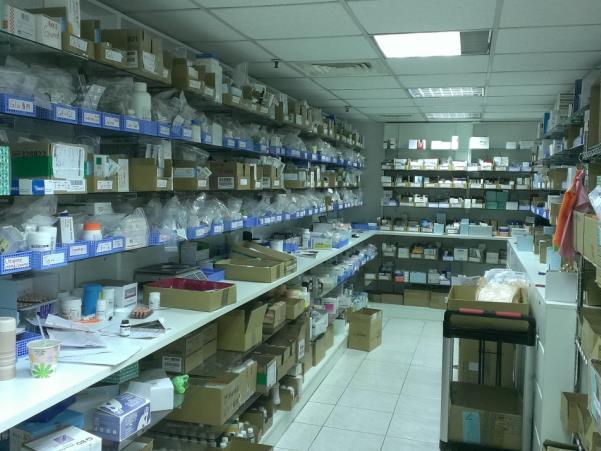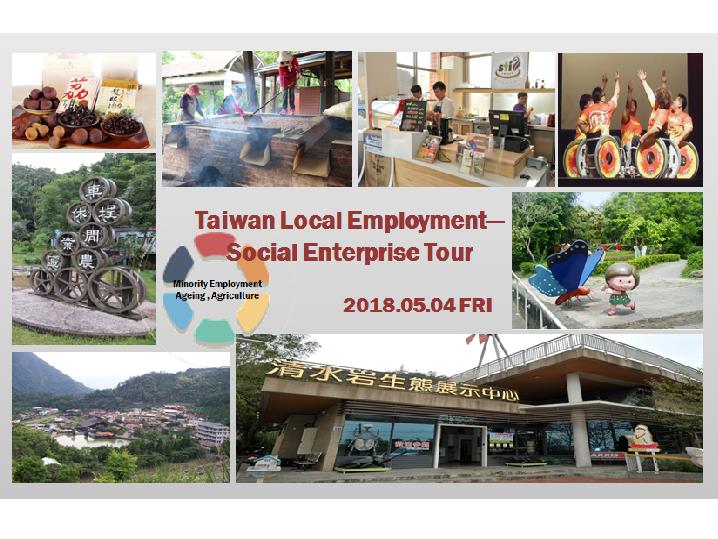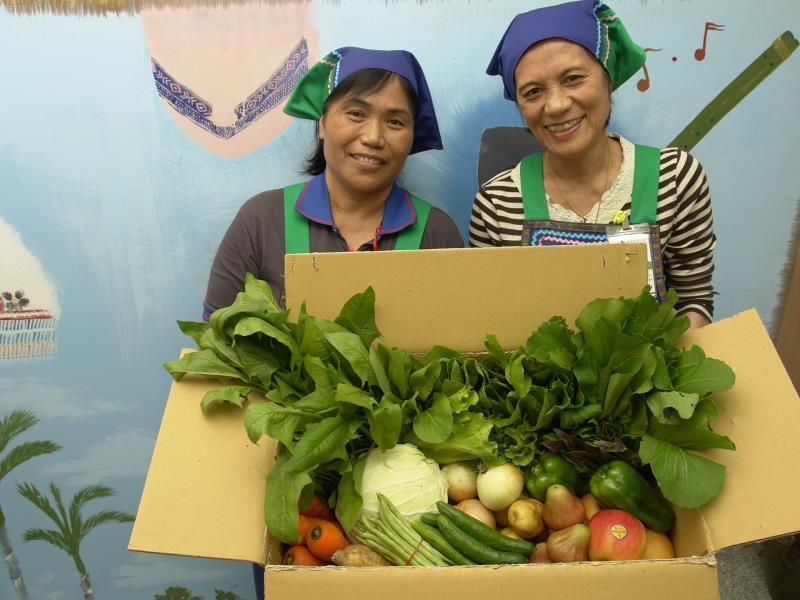Community development
Community development
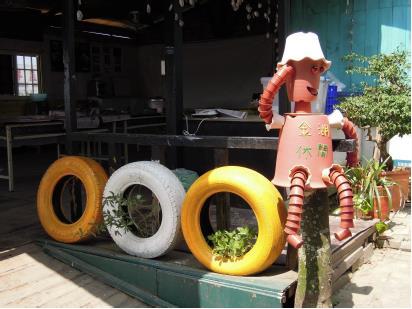
Home/Tag/Community development
Promoting the Concept of Green Leisure, Restoring Connections between People
With the tourism service provided by Jinhu Leisure Farming Zone, Jinhu Leisure Farming Association integrates local agricultural produce, fisheries, landscape, ecology, and cultural resources to develop leisure tourism, eco education, and industry experience. In addition to offering local employment and enhancing staff abilities, the Association also reinvests its profits in the community and takes care of elderly who live alone as well as students in need of special education. In the future, the Association plans to promote sales of its diverse products by receiving certification as an environmental education park, showing the public the beauty of local culture.
Give Opportunities to Disadvantaged Groups in the Labor Market
Agriculture and fisheries have long been the main industry of Kouhu Township, Yunlin County. It is a small town with simple folk customs. Jinhu Leisure Farming Association runs the Jinhu Leisure Farming Zone, seeking to combine local industry with leisure tourism. Due to its participation in the Multi-Employment Promotion Program (MEPP) and the Empowerment Employment Project, the Association has gradually turned into a self-sustaining social enterprise. Project manager Tsai Yun-shan indicates that a social enterprise whose mission is to promote employment should try to inspire people from disadvantaged groups through empowerment. In addition, the organization should see itself as an enterprise that helps enhance social integration.
Tsai uses a partner’s story to explain the function of the Association. This partner had been turned down many times when applying for jobs because her child was very young. Tsai suggested she come work at the Association first, and then they could figure out how to find a balance between family and work. The partner responded that it was the first time she had heard someone being so thoughtful on her behalf. After she came to work, she proved herself to be highly capable. She could work independently selling products. In addition, she was very active in enhancing her communication skills.
When asked about whether she still wanted to receive government subsidies if she had the chance to make a living on her own, she said no. Tsai believes in helping people to develop their abilities by themselves. When they grow strong inside, they may become self-reliant in the future. Tsai also believes an organization should strive to be self-sustaining. This way, it doesn’t rely on government resources in the long run, and the resources can be distributed to those who are more in need.
In the past, the Association focused on assisting farmers and its members to enhance their professional skills, selling strategies, and relevant knowledge. It also planned to bring local agricultural produce to international markets. However, in reality, Tsai realized that farmers also had their own sticking point, and that made them unable to catch up with trends.
Since the purpose of the Association’s work is not profit oriented, how to provide better services to its customers and to farmers became a more important task. Tsai therefore began to think about how to teach consumers a better way to enjoy their leisure time and to live with nature through the concept of green leisure tourism. She also used market demand to lead the farmers to move forwards with her. For instance, when promoting green farming tourism, they only provide safe and eco-friendly products.
To promote the concept of green tourism, the Association built a tourism model with cultural and emotional attachment. Then, it introduced the concept of green education and impacted producers via consumer demand. If consumers only purchase certified products, the Association will only sell these kinds of products.
The services of the Association adapt to ever-changing market demand. For example, when visitors mentioned that they didn’t want to eat meals from outside restaurants, the Association developed special meals for them. Under the support of community housewives, the Association managed to provide buffet meals with local flavors for over sixty diners. They later found they were turning a small profit so decided to turn this service into a real business. They added equipment, improved working processes, enhanced the flavor of dishes, and even sent three partners to be certified in the Level-C catering test.
The Association enrolled many small farmers to form a secure cooperative production model, and they began to develop a network. Tsai believes that building a system to provide secure quality should come first. Then, an enterprise may move to establish its brand image. She?hopes that in the future, when people hear about Jinhu Leisure Farming Zone, they know it’s a trustworthy place selling safe and quality products.
The Association also advocates green education, promoting the culinary concepts of six lights, “light salt, light sugar, light soy sauce, light oil, light voice, and light pace.” It also promotes agricultural education at elementary schools and farmers’ markets.
Encouraging People to Develop Themselves Through Empowerment
Developing manpower has always being a focus of the Association, so partners are encouraged to keep learning and growing. To Tsai, the faith that has supported her is in fact the spirit behind the Multi-Employment Promotion Program. After graduating from elementary school, she opened a shop. After suffering an accident, she could no longer do her job. She went to senior high school at the age of 40. In her second year at school, she began learning computer skills because she wanted to have a second specialty. She never thought that this decision would lead her to the employment program. Tsai found herself very lucky in this matter. To continue learning and growing, she has been receiving training since enrollment. She thus endeavors?to obtain more resources for the partners from the employment program to help them fulfill themselves. She also keeps those partners who need a full-time job most, hiring them as the employees of the Association and giving them the best offer.
Tsai encourages her colleagues to be open-minded, actively involving in learning and selfimprovement. Whenever they complete an important service, they set up a meeting to review the results. Everyone is free to talk. They can be frank about faults and discuss things that need extra attention. Instead of feeling embarrassed, they try harder to accomplish future tasks.
Working as the project manager of the Association’s empowerment employment project, Li Yu-wei turned down a position at a hospital that offered double pay and came here. He said he was still tormented about whether he should return to the hospital three days before he reported for duty. Finally, he chose to pursue a meaningful job, a position that enabled him to get in touch with people and concepts from various dimensions, from which he may learn and grow.
Li also wants to support his family business with the experience he acquires here. Making himself develop patience, he observes and tries different things. He won’t be reckless since impatience only takes more time for one to steer back to the right path.
Giving back to the Community
In addition to focusing on the existing business, the Association also gives back to people in need with its services and profits. For example, with its meal box service, the Association offers free meals to elderly persons living alone.
Tsai talked about a disadvantaged family. The father had a stroke and had to stay in bed. The elder son suffered from a serious stutter and worked in Taipei. The mother and the younger sister were both intellectually disabled. Upon hearing the news, the Association delivered meals to them immediately. When the son learned this, he came to the Association and insisted on paying for the meals. He later asked the Association to send three meal boxes to his family every day, and he settles his account at the Association every month. The incident helped Tsai realize the importance of valuing the dignity of those who are cared for when we turn our care into action. Tsai then told the son not to worry about his family and keep his mind on his work. Because of this event, Tsai began to think about connecting with more external resources to help more people in need.
On a typhoon holiday, people from the Association still send meals to this family. Thanks to media reports, the Association received a great deal of support and donations from the public.?The Association still continues its meal delivery services to the elderly with the profits from its meal box business. In the meantime, the Association also appropriates funds to local students receiving special education.
When people begin to change their living environment, their interpersonal relationships can change as well. Tsai mentions that most of the time we forget to stop and take a look at the things and people around us. It is her hope that in this fast-paced world, people do not just consume and leave in such a hurry but stay for a while to interact with one another. One day, visitors coming to Jinhu Leisure Farming Area will all have satisfied smiles on their faces. The employees of the Association find a sense of achievement through work and feel themselves motivated and united. More importantly, they can interact with visitors with full confidence. The Association will offer better products and services through collaboration and recognition of external cooperative enterprises.
Furthermore, the Association plans to develop a farmer’s market, strengthen environmental education, promote green initiatives and the “six lights,” and enhance external services. By learning from the market, the Association provides a platform for disadvantaged people in the labor market to exert themselves. It also contributes its profits to the community and continues to strive for a better leisure environment.
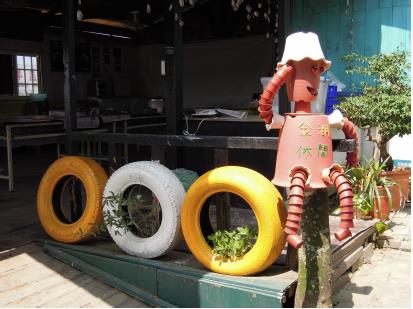
▲ The Association not only provides work for locals but also rebuilds interpersonal relationships through the leisure tourism industry with experiential farming.
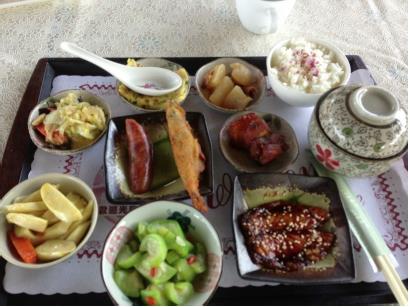
▲ The meals made with local produce were developed due to customer demand. They are very popular.

This work is licensed under a Creative Commons Attribution-NoDerivatives 4.0 International License.
Please attribute this article to “Workforce Development Agency, Ministry Of Labor”.

